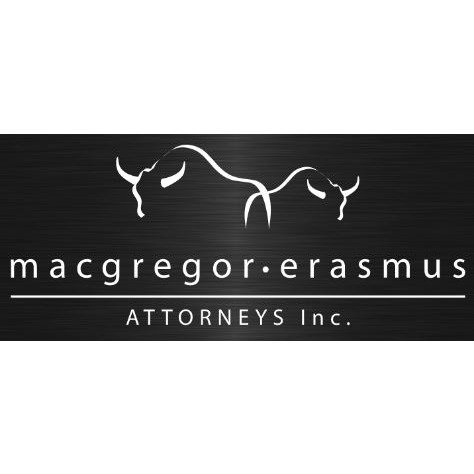Best Investment Lawyers in Cape Town
Share your needs with us, get contacted by law firms.
Free. Takes 2 min.
List of the best lawyers in Cape Town, South Africa
About Investment Law in Cape Town, South Africa
Cape Town, known for its scenic beauty and vibrant economy, is also a key investment hub in South Africa. Investment law in Cape Town is designed to create a conducive environment for both local and international investors. The city aligns with South Africa's overall investment policies aimed at economic growth and sustainable development. This includes fostering an environment that encourages foreign direct investment (FDI) and protecting the interests of investors while balancing national interests.
Why You May Need a Lawyer
Investing in Cape Town can be complex, given the intricate legal and regulatory frameworks involved. A lawyer can be crucial in navigating these complexities. Common situations where legal advice might be needed include:
- Entering into partnerships or joint ventures with local businesses.
- Understanding and complying with the regulatory requirements specific to certain industries.
- Negotiating and drafting investment agreements or contracts.
- Managing disputes or conflicts with partners, clients, or regulators.
- Handling matters related to FDI and understanding tax implications.
Local Laws Overview
Investment law in Cape Town is heavily influenced by national laws. Key aspects include:
- Companies Act: Governs the registration and management of companies in South Africa, including Cape Town.
- Foreign Investment Laws: These laws provide guidelines for foreign investors, including sectors where foreign ownership is restricted.
- Black Economic Empowerment (BEE): Aimed at ensuring economic transformation and inclusivity for historically disadvantaged South Africans. Compliance may be a consideration depending on the industry.
- Property Laws: Critical for investors in the real estate sector, addressing property rights and land use regulations.
- Taxation Laws: These influence investment returns and the structuring of investment vehicles.
Frequently Asked Questions
What is the minimum investment required to start a business in Cape Town?
The minimum investment requirement depends on the type of business entity and the sector-specific regulations.
Are there any sectors restricted for foreign investment?
Yes, specific sectors such as national defense are restricted. It is essential to consult the latest government guidelines.
How do the tax laws affect my investments?
Tax laws in South Africa can affect returns on investment through capital gains tax, corporate tax, and other levies.
Do I need to comply with BEE requirements?
While not all investments require BEE compliance, it is beneficial for accessing certain government contracts and licenses.
What are the common legal structures for businesses?
Common structures include sole proprietorships, partnerships, proprietary companies, and public companies, each with specific regulatory requirements.
Can an investor own land in Cape Town?
Yes, but there are regulations and legal proceedings required for property acquisition which might vary based on the investor’s nationality.
How do I resolve investment disputes?
Disputes can be resolved through mediation, arbitration, or litigation with the help of a legal professional.
What paperwork is needed to begin investing?
Documents typically include valid identification, proof of residence, tax documentation, and industry-specific permits.
How do I ensure compliance with local regulations?
Engaging with local legal expertise and consulting with regulatory bodies can ensure compliance.
Is it necessary to have a local partner when investing?
While not mandatory in all sectors, having a local partner can be beneficial in navigating cultural and regulatory landscapes.
Additional Resources
If you need more information or assistance, the following resources can be helpful:
- South African Department of Trade, Industry and Competition (DTIC) - Offers information on investment regulations.
- South African Revenue Service (SARS) - Provides insights into taxation laws.
- Western Cape Department of Economic Development and Tourism - Offers investment support and guidance.
- Local law firms - Many specialize in investment laws and can offer tailored advice.
Next Steps
If you are considering investment in Cape Town and require legal assistance, consider the following steps:
- Identify your specific investment needs and objectives.
- Research and reach out to law firms with expertise in investment law in Cape Town.
- Schedule consultations to discuss your investment plans and potential legal implications.
- Engage a lawyer who can provide guidance on regulatory compliance, contract drafting, and dispute resolution.
Lawzana helps you find the best lawyers and law firms in Cape Town through a curated and pre-screened list of qualified legal professionals. Our platform offers rankings and detailed profiles of attorneys and law firms, allowing you to compare based on practice areas, including Investment, experience, and client feedback.
Each profile includes a description of the firm's areas of practice, client reviews, team members and partners, year of establishment, spoken languages, office locations, contact information, social media presence, and any published articles or resources. Most firms on our platform speak English and are experienced in both local and international legal matters.
Get a quote from top-rated law firms in Cape Town, South Africa — quickly, securely, and without unnecessary hassle.
Disclaimer:
The information provided on this page is for general informational purposes only and does not constitute legal advice. While we strive to ensure the accuracy and relevance of the content, legal information may change over time, and interpretations of the law can vary. You should always consult with a qualified legal professional for advice specific to your situation.
We disclaim all liability for actions taken or not taken based on the content of this page. If you believe any information is incorrect or outdated, please contact us, and we will review and update it where appropriate.















